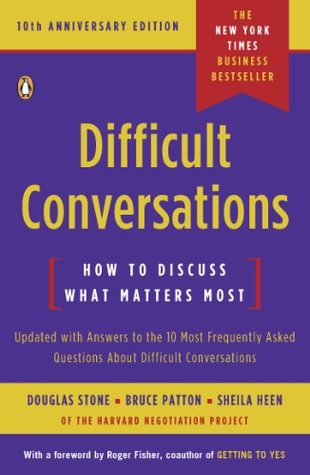More on this book
Community
Kindle Notes & Highlights
Started reading
August 10, 2023
They are not about what is true, they are about what is important.
What I think about your intentions will affect how I think about you and, ultimately, how our conversation goes. The error we make in the realm of intentions is simple but profound: we assume we know the intentions of others when we don’t. Worse still, when we are unsure about someone’s intentions, we too often decide they are bad.
But talking about fault is similar to talking about truth — it produces disagreement, denial, and little learning. It evokes fears of punishment and insists on an either/or answer. Nobody wants to be blamed, especially unfairly, so our energy goes into defending ourselves.
When competent, sensible people do something stupid, the smartest move is to try to figure out, first, what kept them from seeing it coming and, second, how to prevent the problem from happening again. Talking about blame distracts us from exploring why things went wrong and how we might correct them going forward. Focusing instead on understanding the contribution system allows us to learn about the real causes of the problem, and to work on correcting them.
difficult conversations do not just involve feelings, they are at their very core about feelings.
Arguing inhibits our ability to learn how the other person sees the world.
Telling someone to change makes it less rather than more likely that they will. This is because people almost never change without first feeling understood.


